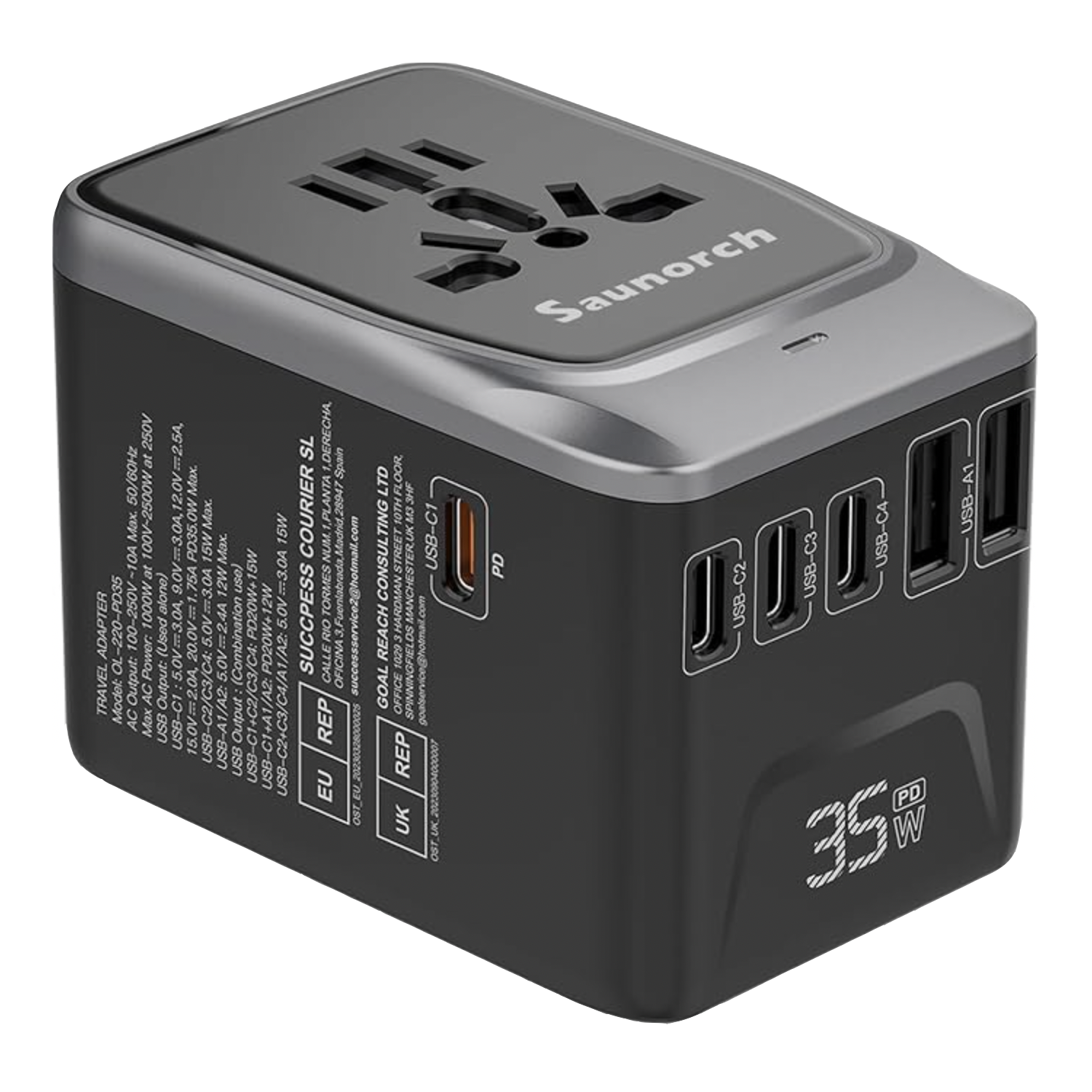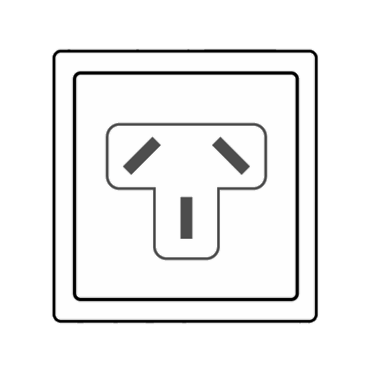New Zealand Standard Voltage
New Zealand Power Frequency
New Zealand Electrical Socket Types
Will my power plugs work in New Zealand?
New Zealand uses Type I electrical outlets with standard voltage of 230V and 50Hz frequency.
If your device plugs don't match New Zealand's standards, we recommend purchasing suitable travel adapters in advance to ensure proper use.
What power plug types are used in New Zealand?
Do you need a voltage converter for New Zealand?
New Zealand's voltage standards may differ from your device requirements.For devices not supporting wide voltage ranges, we recommend using dedicated voltage converters to protect your device safety.
If you need to address both plug adaptation and voltage conversion, consider combination converter adapters to solve both problems at once.
Electrical Device Compatibility Guide for New Zealand
Safety Reminders for Using Electrical Devices in New Zealand
⚠️ Important Reminder:In New Zealand, the voltage is 230V and the frequency is 50Hz. Please ensure your appliances support this voltage to avoid damage or safety hazards. Make sure to use type I plugs. If your devices are not compatible, use a suitable adapter. In case of emergency, call 111 for urgent services.
Power preparation guide for traveling to New Zealand
Frequently Asked Questions
- Do I need a power plug adapter for New Zealand?
Yes, traveling to New Zealand requires a power plug adapter. New Zealand uses Type I electrical outlets, which may not be compatible with your device plugs. We recommend purchasing universal adapters that support Type I plugs.
View Travel Adapters on Amazon - Do I need a voltage converter for New Zealand?
New Zealand's standard voltage is 230V with 50Hz frequency. If your device is labeled "100-240V 50/60Hz", you only need a plug adapter. If the device only supports single voltage (like 110V or 220V devices), you'll need a voltage converter to protect your device from damage.
View Voltage Converters on Amazon - Which devices need voltage converters in New Zealand?
The following devices typically need voltage converters: hair dryers, straighteners, irons, some small appliances. The following devices typically only need plug adapters: phone chargers, laptops, tablets, camera chargers, electric toothbrush chargers. Check the voltage range on device labels before use. If you need to address both plug adaptation and voltage conversion, consider purchasing combination converters.
View Combination Converters on Amazon - What should I be aware of when using power adapters in New Zealand?
When using power adapters, please note: 1) Check adapters and devices for damage before use; 2) Avoid use in humid environments; 3) Don't overload outlets; 4) Choose safety-certified adapters; 5) Immediately disconnect power if devices overheat or behave abnormally. Choose reputable brand adapters for better safety and reliability.
- Where can I buy power adapters for New Zealand?
You can purchase from: 1) Online before departure for convenience and variety; 2) Airport duty-free or electronics stores; 3) Local electronics stores, convenience stores, or supermarkets in New Zealand. We recommend preparing adapters before traveling to avoid search hassles after arrival. Choose universal adapters supporting multiple country standards for better practicality.
- What are dual voltage devices? How to identify them?
Dual voltage devices can work under different voltage standards, typically labeled "100-240V" or "110-240V". Identification method: Check labels on device power adapters or chargers - if showing voltage range (like 100-240V), it's dual voltage and only needs plug adapters in New Zealand. If showing only single voltage (like 220V), you'll need voltage converters.
Recommended Adapters

Universal Travel Adapter | 7-in-1 PD 35W International Plug Converter | 4 USB-C & 2 USB-A Fast Charger | Compatible with 200+ Countries
This universal travel adapter is designed for over 200 countries, including the US, UK, EU, and AU plug types, making it the perfect companion for business trips and vacations. With PD 35W fast charging, the USB-C1 port charges an iPhone 15 Pro to 60% in just 30 minutes. Equipped with 4 USB-C and 2 USB-A ports, it powers up to 7 devices simultaneously. Its innovative auto-resetting 10A fuse protects your devices from overload or short circuits and eliminates the need for replacements. Made with high-quality flame-retardant materials and certified by FCC, CE, and RoHS, this compact and portable adapter ensures safety and reliability. Note: This adapter does not convert voltage. Buy now and simplify your global travel!
